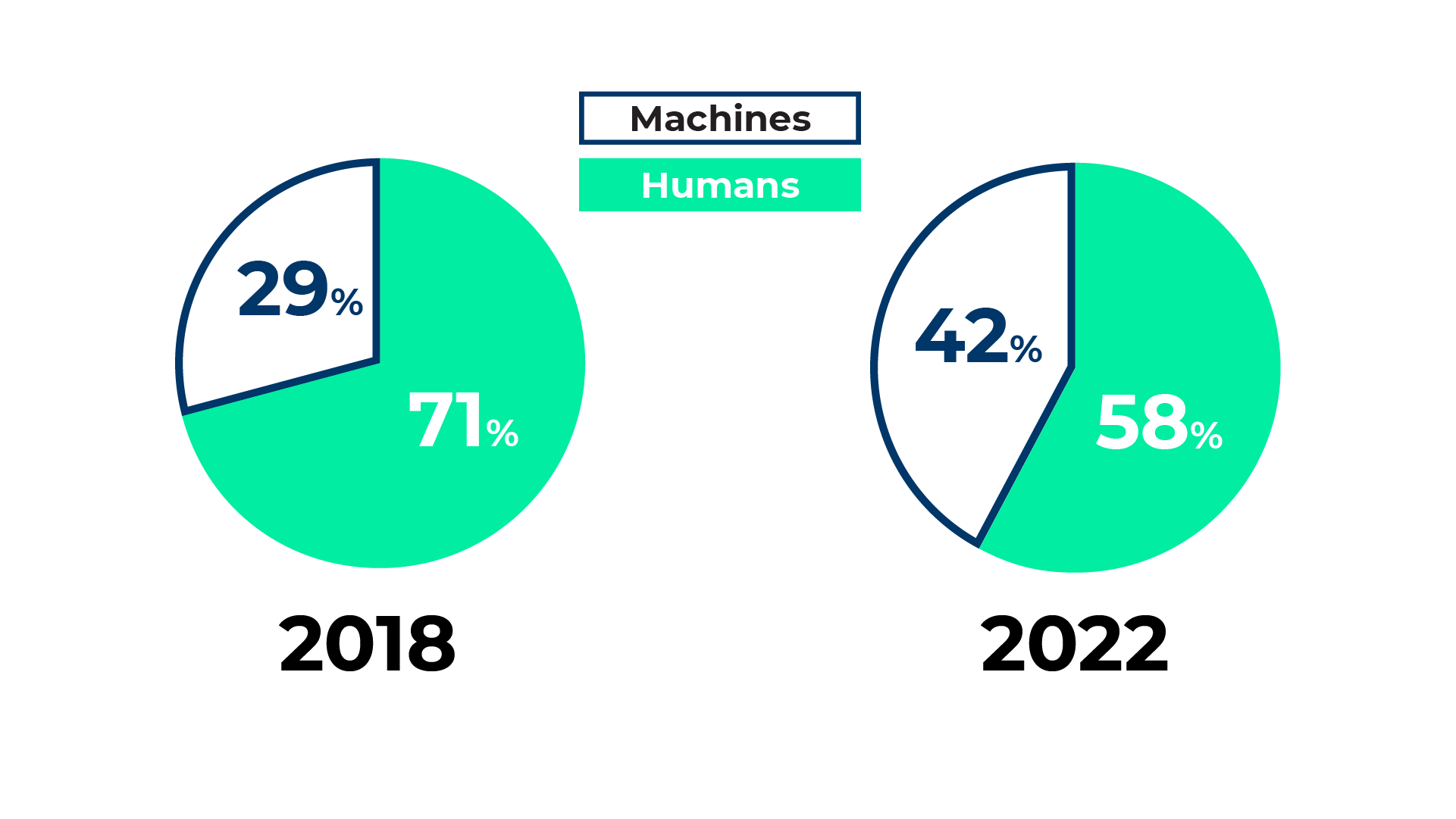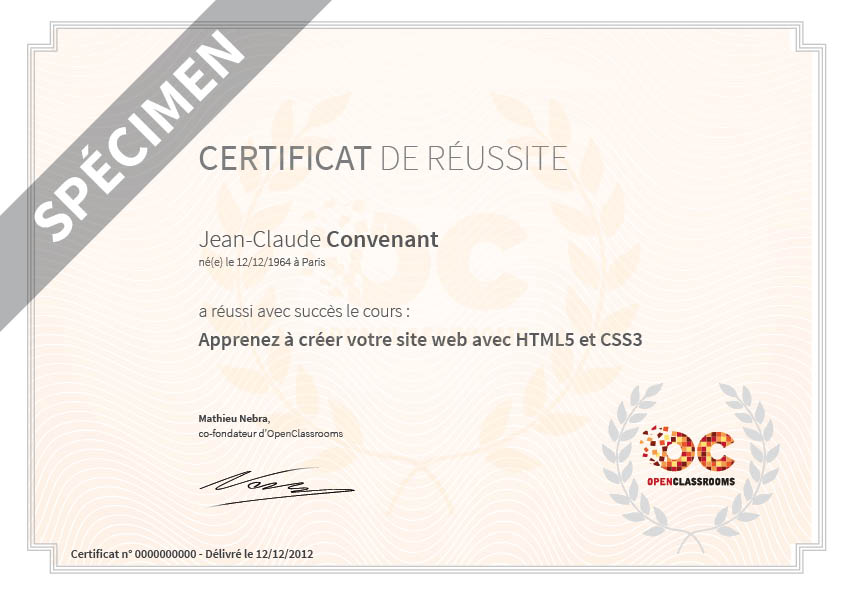If the world is becoming more digital, why are soft skills so necessary?
Great question! Digitization pushes us to continually adapt to new tools, practices, and ways of interacting. Additionally, we also have to face new challenges, which we'll explore together.
Challenge No. 1: Task Automation
Task automation and the rise of artificial intelligence involve rethinking the way people work.
According to the World Economic Forum, in 2018, about 71% of work was done by humans and 29% by machines. In 2022, they estimate that the gap will be less: humans will do 58 % of the work, and machines will do 42 %.

Does that mean that all of our work is going to be replaced by machines or robots?
No, but most definitely a part of it! Repetitive and difficult tasks that don’t require creativity will probably be automated.
But there are skills that machines cannot replace: human (soft) skills.
As industries automate tasks, it provides an excellent opportunity to focus on what humans bring to the table: knowing how to think, appeal to the analytical mind, stimulate collective intelligence, solve complex problems, adapt to the emotions of others, etc. All of these skills are already valuable today, and they will become even more so tomorrow.
Challenge No. 2: The Acceleration of Time
You may have noticed that tools, technologies, and practices evolve faster and faster.
For example, to meet consumer expectations and demands, online shops now deliver orders the same or next day.
People also don’t consume the same way they did a few years ago, and there are several reasons why.
Have you noticed that your mobile phone starts having glitches after around two years? That’s planned obsolescence. The idiom, “They don’t make ’em like they used to,” is correct. This practice requires consumers to buy new equipment (computers, mobile phones, tablets, light bulbs, etc.) more often than previous generations.
Planned obsolescence also applies to careers. In the past, workers would stay at the same company for their entire career. That’s not true today. The current generation will change companies much faster (and more often) than previous ones.
Ultra-responsiveness and rapid adaptation to changes become the norm.
Dealing with this acceleration of time requires learning quickly and efficiently, and knowing how to be flexible.
Challenge No. 3: Uncertainty, the Unknown
According to a study by Dell and the Institute for the Future, 85 % of the jobs for 2030 are unknown. Whether these forecasts are accurate or not, they invite us to reinvent our relationship to work and the future.
As mentioned, you are probably not going to work for the same company your entire career. Today, career paths are less and less linear. Your professional experiences and abilities will be increasingly more diversified.
For example, if you work for a start-up, you'll probably wear several hats and have various responsibilities. You will need to be agile - and show that you can quickly change tasks and work independently.
If you work in a large group, you'll undoubtedly help update work methods and processes, some of which have been around for decades.
Challenge No. 4: The Complexity of the Problems To Be Solved
Society is facing several significant challenges that also impact companies.
Environmental issues: global warming, plastic pollution, depletion of natural resources, loss of biodiversity, etc. have been getting worse over the past 30 years. These issues question the current economic model: why and how companies produce the way they do.
Social issues: social inequalities have exploded over the past 30 years.
For organizations to face these complex problems, they need to question their practices and look for lasting solutions. One example is how companies had to adapt to the COVID-19 crisis that forced the world to reinvent itself quickly.
Okay, but what does that have to do with soft skills?
For organizations to solve complex problems and adapt to change, they need innovative and inspiring leaders who can demonstrate critical thinking, communication skills, and self-confidence to look at different views. In other words, they need people with soft skills.
But don't just take our word for it. Watch our interview with Dr. Marcia Goddard, an expert in social neuroscience, to gain more insight into the relationship between change in the workplace and the development of soft skills.
Let's Recap!
In this chapter, you explored four challenges:
Task automation and artificial intelligence will make technical skills obsolete and bring back human skills.
The acceleration of time pushes us to continue to adapt at a growing rate.
Uncertainty and the unknown create careers that are increasingly less direct.
Organizations face complex social issues and need professionals with soft skills to meet them.
What are the skills recruiters are looking for? We'll explore that in the next chapter.
